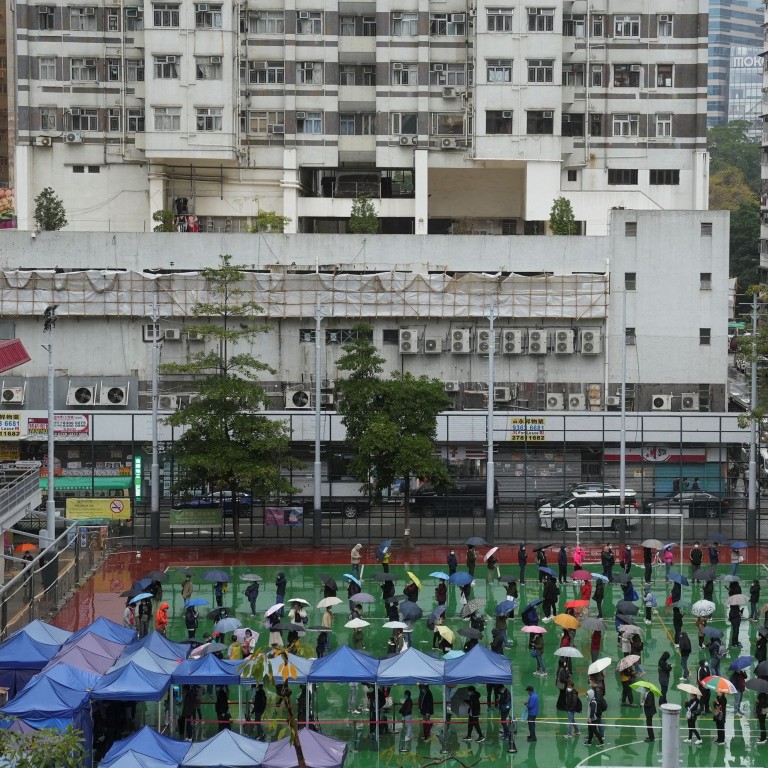
Coronavirus: Beijing arrival found positive after 21 days in quarantine and on third test
- In addition to asymptomatic case, Beijing authorities uncover nine imported cases in people who travelled from Hong Kong and arrived in the capital February 16-19
- While the zero-Covid approach may work for mainland disease management, the situation in Hong Kong is different, says respiratory disease expert
The person, who entered Beijing after completing 21 days of quarantine, tested positive for the virus on the third nucleic acid test during the seven-day stay-home health monitoring period, according to a statement by Beijing’s health authorities.
The individual was diagnosed with an asymptomatic infection on Sunday afternoon and taken to a hospital. The statement did not say where the person had come from.
Health authorities promptly carried out tests in Fengtai district in southwestern Beijing where the asymptomatic patient was staying. More than 2,000 people were tested, all of whom had negative results, according to the Centre for Disease Control and Prevention in Fengtai.
The most recent local outbreak in Beijing was in late January, soon before the Winter Olympics started. Twenty daily cases were confirmed on January 30 at the height of the outbreak, according to the National Health Commission. Of those 20, some 13 came from Fengtai district.
Also on Monday, Beijing authorities said mass Covid-19 testing had uncovered nine imported cases in people who had travelled from Hong Kong and had arrived in the capital between February 16 and 19.
Omicron has brought Hong Kong to its knees. How did it all go wrong?
The Inner Mongolia autonomous region – which is home to the latest surge in cases in China and is undergoing its second major Covid-19 outbreak since December – reported 65 cases on Sunday and 46 on Saturday.
There were 73 other imported cases declared in China on Monday, with most cases in Shanghai (27 cases) and Guangdong province (20). The cases were detected in mass testing carried out on Sunday.
According to Chuang Shuk-kwan, head of the Centre for Health Protection’s communicable disease branch, both the confirmed and preliminary confirmed cases had risen from around 4,000 a day between February 15 and 17 to 7,000-10,000 a day since February 18.
“Combining lockdown with repeated mass screening is more suitable under the mainland social system with its strong community infrastructure support,” Hong Kong respiratory disease expert Leung Chi-chiu said last week.
“As the Hong Kong scenario is rather different, we need to use our own methods to slow the spread of the virus and speed up cutting off transmission links.”


